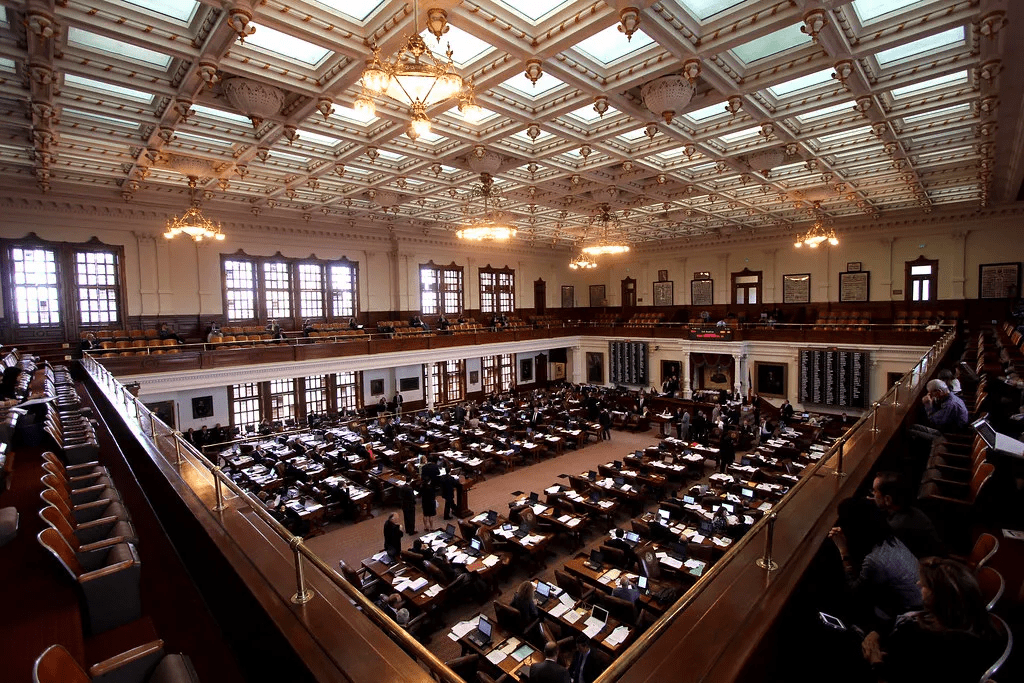Texas’ Department of Family and Protective Services (DFPS) spent over $260 million in the past three years housing foster kids in what some are calling “dangerous” conditions.
A state document obtained by Texas Public Radio first revealed that between the fiscal years 2021 and 2023, the DFPS spent tens of millions of dollars under the Children Without Placement category, which applies to children in the foster care system.
The per capita cost last fiscal year could be as high as hundreds of thousands of dollars per youth.
High costs are one thing. However, the costs mixed with concerns about the department’s effectiveness and effort to care for the youths under their tutelage are causing some to scratch their heads.
TPR’s report noted that DFPS listed some of its high-dollar expenses as covering security ($35 million), overtime ($34 million), and staff travel expenses ($14 million). Lacking at the top were support services and health care for the children.
“They’re putting a quarter billion dollars’ worth of Band-Aids on a shadow system that is inherently dangerous and wrong, and they have to come up with a plan,” R. Paul Yetter, a Texas-based attorney representing foster children, told TPR.
Serious issues with the department have been observed for some time.
A July 2023 Texas Scorecard investigative report uncovered that at least 213 minors in the state’s care became sex slavery victims after going missing. However, that number is likely far higher, with 790 minors still missing in the state.
A December 2022 report by the Texas Senate’s Special Committee on Child Protective Services, led by State Sen. Lois Kolkhorst (R–Brenham), zeroed in on less than adequate investigative work by DFPS from 2010 to 2020. This was covered in part three of Texas Scorecard’s investigative series on DFPS.
Most recently, Judge Janis Graham Jack of the federal District Court in Southern Texas considered holding the DFPS in contempt of court for a third time since 2011 over its deteriorating foster care conditions, The Texas Tribune reported.
Jack initially condemned the system in 2015 and was later backed up by the U.S. Fifth Circuit Court of Appeals. Since then, she has continuously criticized the state for not complying with her orders aimed at fixing the problem.
“It’s very disappointing, isn’t it?” Jack said of the DFPS’ struggles at a hearing on the topic last month.
However, Kolkhorst says the system is improving and lawmakers are taking steps to better account for spending in DFPS.
“The Texas Legislature has made significant investments in the foster care system over the last three budget cycles,” Kolkhorst told Texas Scorecard.
The system continues to have challenges, and it’s important to remember that many of these budget increases have been directly tied to requirements imposed on DFPS by a federal court in the foster care lawsuit brought by a New York-based children rights group. These requirements include mandating more DFPS staff to meet caseload limits and paid 24-hour monitoring of children placed in certain residential childcare facilities, including Residential Treatment Centers. In addition, Texas is paying for the cost of individuals appointed by Judge Jack (who oversees the federal lawsuit) to track compliance with court orders. Since fiscal year 2020, the state has paid the court monitors $50 million and without a transparent accounting of those charges. In the current budget, Section 27 of Special Provisions relating to all Health and Human Services Agencies (HB 1) required DFPS to report the invoice amounts billed by the court monitors for specific orders and services, so the taxpayers will finally have a better idea of costs and outcomes.
“Overall, there is progress with certain DFPS functions,” explained Kolkhorst. “The department is continuing to roll out Community-Based Care, and improvements have been made regarding the number of children in ‘Children Without Placement’ (CWOP) status. In June of 2021, CWOP peaked at 524, while last month the CWOP number was down to 95. Additionally, this past session, the Legislature made a significant investment to modernize rates for foster care and the rates for children placed in kinship placements.”
“But clearly there is more work to do, particularly on improving the accuracy and consistency in child abuse and neglect investigations across our state,” concluded Kolkhorst.
Texas Scorecard reached out to the DFPS about the news surrounding its bloated spending and widely criticized foster care conditions but did not receive a response before publication.
No ads. No paywalls. No government grants. No corporate masters.
Just real news for real Texans.
Support Texas Scorecard to keep it that way!





